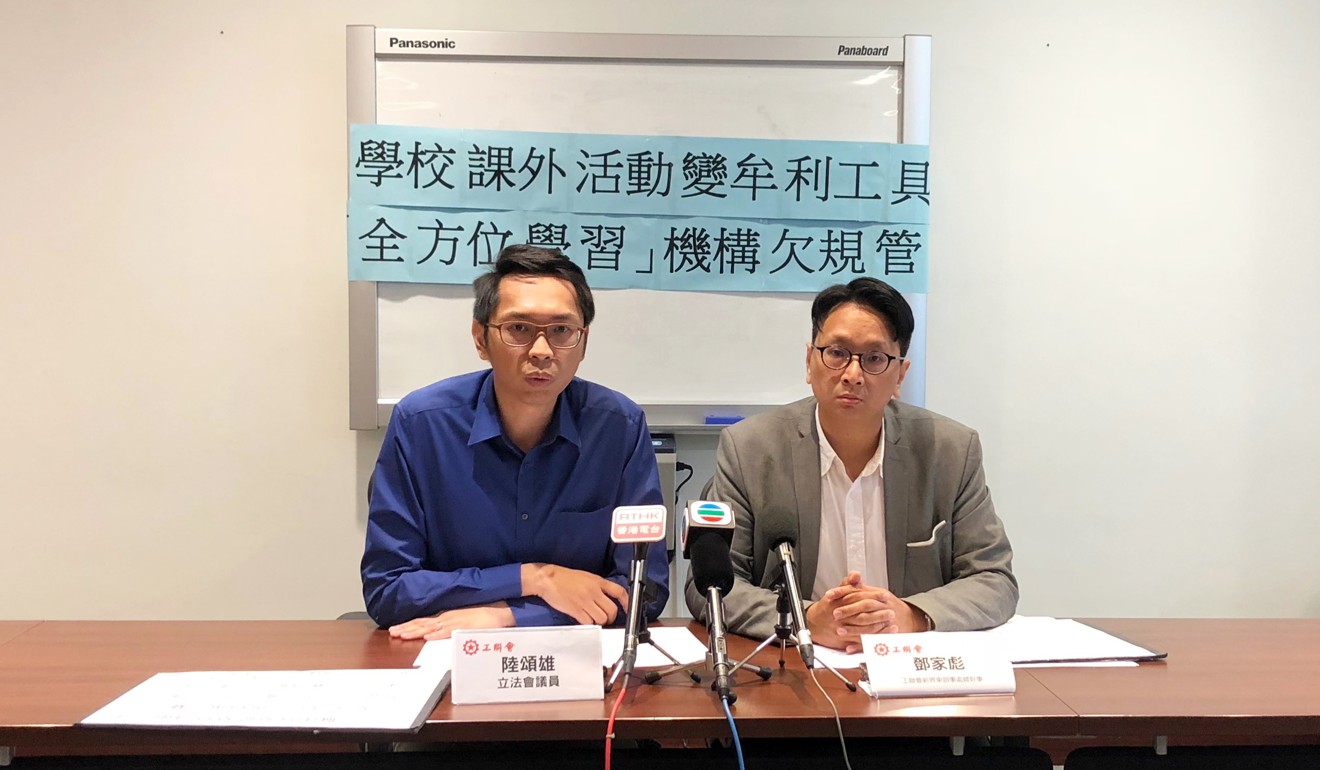
Hong Kong’s HK$900 million fund for after-school programmes needs better supervision as lawmakers express concern system is open to abuse
- Warning comes after Chief Executive Carrie Lam announces funding boost in policy address
- But lawmakers worry about lack of oversight after parents complain about temple visits during trip to 2018 Asia Mathematics Olympiad in Thailand
The government’s new HK$900 million fund to encourage more after-school activities for students could be subject to abuse, and should be closely supervised, lawmakers have said.
The warning comes after Chief Executive Carrie Lam Cheng Yuet-ngor announced in her second policy address earlier this month, that the government would provide almost a billion dollars a year for its life-wide learning grant starting in the 2019 to 2020 school year.
Legislator Michael Luk Chung-hung said that schools wishing to apply for the fund could do so with little in the way of oversight.

“The schools just have to provide a summary of the extra curricular learning activities, and very often the application has a low threshold,” the pro-establishment lawmaker said.
The life-wide learning fund was established in 2002 by the Hong Kong Jockey Club, and the Education Bureau, to help schools support financially disadvantaged students take part in all-round learning activities organised, or recognised, by the school.
Over the past three school years, more than 930 schools have applied for the fund, and upwards of 210,000 students have benefited every year.
With the government’s highlight on extra curricular experiences for students, Luk worried that organisations could abuse the allowance.
“Some companies may see this as a business opportunity to sail under false colours, tricking parents and schools into joining after school programmes, in return for business,” Luk said.
Universities among the big winners after Carrie Lam’s policy address
The concerns surfaced after Luk and another member of the Federation of Trade Unions (FTU), Tang Ka-piu, received complaints from parents last month. The parents claimed they had been “tricked” into going on a six-day study tour to Thailand for the 2018 Asia Mathematics Olympiad.
“The victims said the school had been urging their children to join the trip, as it would enhance student learning,” Tang said. “But, for three of the six days the group went shopping, and visited temples.”
He added that while the tour was described as a study trip, it was actually more like forced tourism. To better protect parents and students, both Luk and Tang have called for the fund to be more tightly regulated.
“There is a need for a stricter application process, organisations should also be required to provide their curriculum or itinerary in detail, before the activities are subsidised,” Luk said.
All work and no play: why more city’s children are having mental health problems
In addition, he urged the government to establish a list of registered organisations that can provide extra curriculum activities to the city’s schools to ensure the quality of these programmes or overseas trips.
In response to the lawmakers’ concerns, the Education Bureau said it had issued manuals to primary and secondary schools that included guidelines for choosing which activities to pursue.
The bureau said schools should select activities according to their students’ needs, and reiterated that the schools are required to submit audits every year to ensure that public funds are properly spent.
However, the department admitted it would be difficult to implement a list of registered groups that are qualified to provide extra curricular activities because of the increasing number of such programmes.

